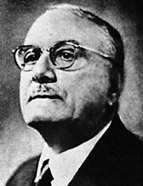

A short time later, in 1945, Sérgio penned the beautiful preface to Fernão Lopes’s Crónica de D. João I (Chronicle of D. João I). Here he provides clear evidence for the bourgeois leadership of the 1383 revolution (thereby following Cortesão) even if some from, or influenced by, the Marxist left, for example, Álvaro Cunhal (1913-2005) and Joel Serrão (1919-2008), attempted to refute what Sérgio’s analysis of Fernão Lopes’s text now proposed. They defended an interpretation that emphasised the popular nature of the revolution, while Sérgio highlighted the bourgeoisie’s leadership of the movement. The revolutionary drive had come from the ordinary people, the plebs, and not from the cosmopolitan bourgeoisie of the Portuguese ports. However, what they agreed about was that it involved a deep social conflict and was not just one more war between Portugal and Castile. Sérgio’s polemical disagreements about sebastianismo and D. Sebastião, the king, the debate about Seiscentismo and 17th century Portugal, his comments about António Vieira and the Enlightenment, and many other subjects and issues emerge from his intellectual teachings. He frequently became involved in controversies that he himself largely sought. One critic came to label this permanent disposition of his as “controversy-inspiring pedagogy”, whilst others spoke of his “controversial capriciousness”.
In his last works he returned to historical subjects: the re-edition of Gomes de Brito’s História Trágico-Marítima (Tragic Maritime History) and an anthology of naval disasters to which he gave the title Naufrágios e combates no mar (Shipwrecks and Sea Battles). In the last volume of Ensaios, 1958, he even explains why he was so interested in writing the boycotted História de Portugal. It was a question of “acting on the minds of my younger fellow-countrymen, leading them to face the country’s successes not as artists of fine ‘resurrections of the past’, nor with the vanity of historical patriotism, but in the manner of an observer-cum-sociologist, of a man who fights for the emancipation of the people - with the spirit of those who understand that the human value of an era is not measured by the splendour of its deeds of war, by the luxurious ostentation of the lifestyle of the rich, by the buildings, by the magnificence of the State, but by the effort made to seek justice towards the vast majority of the people; and that benevolent politicians were those whose aim (whose immediate goal) was ‘that each peasant could put a chicken in the pot on Sunday’, as the great French king Henri IV had wished, and here in Portugal a Mouzinho”. It was necessary to shake off the injustices of earlier times that remained to oppress the poor, “an evil tradition”. This was an “educational and pragmatic” task which led him to write about topics of a historical nature where once again he endeavoured to show how improvisation and a lack of rationality could lead to everything being lost – just as the accidents caused by badly stored cargo in the ships coming back from India led to them sinking and the loss of both goods and men: “a financial, social and moral failure”. And thus the Asian empire was lost – always a result of the irresponsibility of the rulers who did not know how to prepare nor impose the necessary professional skills.
